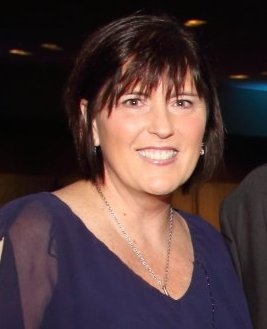Racism Should Be Treated Like The Disease It Has Always Been
- Written by Sue King

Whether we’re watching it unfold across the television screens and social media channels from the safety of our homes or have joined the throngs who are compelled to protest in person as civil unrest churns through our communities nationwide, it is critical that we keep our collective gaze fixed on the root of the pain we are experiencing: institutional racism and crippling inequities that will only be healed with education, systemic change and a commitment to inclusion that challenges unacceptable norms.
Those who find themselves surprised, shocked or outraged by acts of defiance to oppression and injustice do so only because they enjoy a mantle of privilege that is so light they can barely feel its weight. For our millions who are in any number of ways different than the oppressors-- in skin color, religious beliefs, gender identity, sexual orientation, or physical, developmental or mental abilities, there is no mantle, only a heavy burden. To understand any bucking against the burden, we must first truly acknowledge its weight.
Racism and oppression have a deep impact on not only physical health, but also mental health. Racism is a significant social determinant of health and a source of chronic stress. It is truly a disease.
As I think about this year and the inequities that have been laid bare by first a pandemic and now a predictable response to racism that permeates our systems to the point of breaking, I’m easily able to identify the crossroads where mental health and inequity co-exist.
This year, Mental Health America of Eastern Missouri celebrates a significant milestone—75 years serving the region as the only organization in the St. Louis Community concerned with addressing the entire spectrum of mental health and mental illness. Founded in 1945 as the Mental Health Association of St. Louis, the organization was established to give form and structure to the growing community concerns for the needs of another marginalized group of individuals--those living with mental illness. How ironic we started our work in the month of May, at a time when our community celebrated along with the rest of the nation the end of World War II, defeating the most heinous and widespread oppression in world history.
Since that time, against the backdrop of complicated and challenging racial divisions and tensions that have defined our community in painful ways, we have remained steadfast in our mission to meet the needs of those living with mental illness through advocacy, education and service. It’s important that we look at the language and intention that has guided this work since the beginning. It’s inspiring and just as relevant today:
Mental Health America of Eastern Missouri envisions a just, humane and healthy society in which all people are accorded respect, dignity, and the opportunity to achieve their full potential free from stigma and prejudice.
This is not a new fight. It’s an old fight that has yet to be settled in ways that are fair, humane, honest or satisfactory in any way. We remain committed to leading and contributing to conversations about inclusion, eliminating systemic racism and stigma of any kind that creates barriers to healthy, safe and equitable opportunities for everyone living in our communities. Until we achieve that, our work is not finished.
For those of us who are in the position of privilege, who have the luxury of being uncomfortable from a distance, now is the time to act in ways we might not have considered before on behalf of those who have lived in the thick of discomfort for too long. We must consider and reconsider our positions on important issues that most impact marginalized people and be a part of changing systems that create barriers to successful, safe living. And then, we must act. We must not only vote, but also be committed to making that process accessible to everyone else living in our communities. We must create dialogue and demand change from those who create our laws and those who enforce them. And we must create change by volunteering our time, talents and financial resources to those organizations that exist solely to solve problems and lighten the heavy burdens that so many of our neighbors have inherited and carried for too long. When we recognize that this burden is also ours, we can heal.
About the Author
 Sue King is President and CEO of Mental Health America of Eastern Missouri.
Sue King is President and CEO of Mental Health America of Eastern Missouri.






















